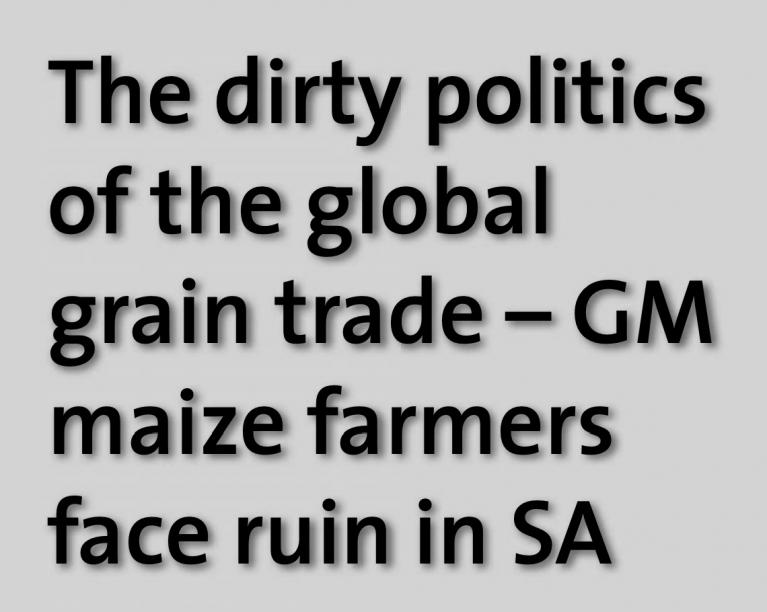Latest Resources

24 March 2011
GM maize in SA
Genetically modified (GM) maize is big business globally. In 2011, farmers grew about 51 million hectares of GM maize. Most of this production happened in the United States where the majority of GM crops are being grown. There are just four major GM crops grown in the world today and maize and soya make up […]

24 March 2011
GM soya in SA
It might surprise you to learn that there are very few kinds of GM crops growing in the world today – the four major crops are soya, maize, cotton and canola. The most commonly grown GM crop is soya – it makes up almost half of all GM crops grown around the world. This soya […]

24 March 2011
International regulation of GMOs
Genetic engineering (GE), also called genetic modification (GM), is not just a modern version of the natural breeding that we know and have practised for many thousands of years. It is a new and totally artificial way of creating living organisms that can never occur in nature. These genetically modified organisms (GMOs) have a life […]

24 March 2011
Flawed Genetically Modified Organisms (GMO) Act
It was only in 1999, after much pressure from civil society groups, that the Genetically Modified Organisms (GMO) Act of 1997 came into force. At that early stage, few people had expertise on GMOs and civil society was only starting to learn about the issues. Therefore, government relied on experts from the biotechnology industry to […]

24 March 2011
Monsanto – from chemical producer to food producer
Monsanto is one of the most powerful players in the global seed business today. Not only does it own a huge portion of the world’s commercial seed, but it also wields a lot of power over global agricultural policy and practice. How did a company that started out by making chemicals for warfare, gain control […]

24 March 2011
What is a GM crop?
Genetically modified (GM) seeds have been created in a laboratory. The process of creating them is completely new and does not happen in nature. Since farming began people have worked with nature to breed plants and animals to suit human needs. Usually this breeding can only happen within the same ‘species’ or family. For example, […]

24 March 2011
Debunking GM myths
The biotechnology industry has spread many myths about what GMOs can do. These are not based on fact and have been shown to be false in reality. Myths we often hear include: GMOs decrease pesticide use; they have massively increased yield potential; and have been thoroughly tested for safety. GM crops are not the norm. […]

16 February 2011
Response to the Environment Green Paper 2010
The ACB has submitted comments on the Department of Environmental Affairs’ National Climate Change Response Green Paper. Read here.

8 September 2010
The dirty politics of the global grain trade – GM maize farmers face ruin in SA
Recently, the South African press reported on the possible bankruptcy faced by maize farmers. The African Centre for Biosafety (ACB) has today released a new report titled “The dirty politics of the global grain trade – GM maize farmers face ruin in SA” which provides an analysis of why South Africa’s record 13 million ton […]

13 August 2010
GM Sorghum: Africa’s Golden Rice
In this paper, we critically analyse the African Biofortified Sorghum (ABS) project, a GM ‘poster project’ in Africa. We dig beneath the veneer of the project being an “African led solution” to poverty and malnutrition on the continent. We also focus attention on the myriad of sorghum research initiatives currently underway in Africa, using both […]
